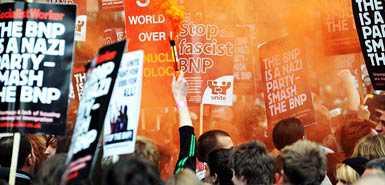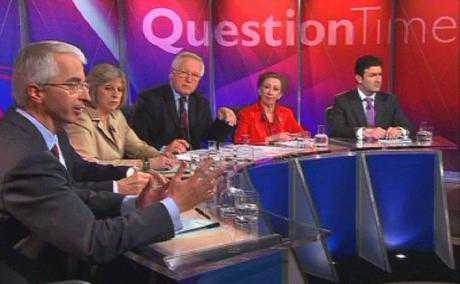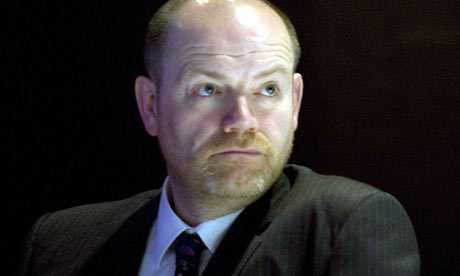The BBC said that it was delighted with the outcome of Question Time last night, insisting that the decision to change the format of the show to focus almost entirely upon Nick Griffin had humiliated the British National Party leader.
 But the reaction from viewers suggested that the gamble had not been a complete success, with many of the audience writing on internet messageboards that they felt the programme was one-sided and allowed Mr Griffin to claim that he had been victimised.
But the reaction from viewers suggested that the gamble had not been a complete success, with many of the audience writing on internet messageboards that they felt the programme was one-sided and allowed Mr Griffin to claim that he had been victimised.
Four out of the five questions the panel were asked directly related to the BNP, with the fifth focusing on Jan Moir, the Daily Mail columnist, who attracted more than 20,000 complaints for a piece about Stephen Gately, the deceased Boyzone singer.
BBC sources said that the show had been skewed to ensure that the corporation would not be accused of giving Mr Griffin an easy ride.
Writing on the BBC website, one viewer said: “A political debate programme or a chance to bully a man? Give him a chance to answer the questions put to him. I have never been so angry about a programme in my life.”
Both the BBC and Ofcom, the broadcasting regulator, are expecting a barrage of complaints from viewers who were offended by Mr Griffin’s presence on the show.
Peter Hain, the Welsh Secretary, who campaigned to block the broadcast, said after the show: “This decision could end up blighting the lives of many decent people just because they are not white. The BBC should be ashamed of single-handedly doing a racist, fascist party the biggest favour in its grubby history. Our black, Muslim and Jewish citizens will sleep much less easily now the BBC has legitimised the BNP by treating its racist poison as the views of another mainstream party when it is so uniquely evil and dangerous.”
Mr Griffin had to be smuggled in and out of the BBC via a back entrance last night after about 25 anti-fascist protesters broke into Television Centre, cheered on by hundreds more who were blocking the road outside.
About 600 demonstrators expressed their disgust as the BNP leader was ushered towards BBC Studio Six surrounded by bodyguards for the recording of Question Time.
His chaotic arrival at the entrance on Frithville Gardens was delayed because his car had to struggle through the crowd. “It seems the police do not have this mob under control,” Mr Griffin said.
An initially peaceful demonstration soured late in the afternoon when police responded to a breach of security by physically restraining protesters. Wooden poles were torn from placards and hurled into the four-deep line of officers.
Scotland Yard said that six arrests were made at the protest, two for violent disorder, one for a public order offence, one for actual bodily harm and one for assault on a police officer. The sixth was for a person wanted on a warrant. One of those held was Martin Smith, 43, a national officer with the Unite Against Fascism pressure group.
As the demonstration became more heated, Heathcote Rughven, 19, a drama student, said that he had been struck on the head with a police baton. He said: “The police were being the more aggressive of the two parties. A few people got hit. I feel it was undeserved because we were just chanting and being peaceful and the police charged.”
Between 25 and 30 protesters broke off from the main demonstration and charged the BBC’s main entrance gate as a vehicle was allowed through.
Backed by chants of “BBC, shame on you” and “Nazi scum off the streets” the small gang, believed to be predominantly from Unite Against Fascism, slipped through security and ran on to BBC property.
Rachel Parish, 20, a philosophy student, made it through the security barrier but was stopped in the car park. “The BBC should be ashamed. How can you give a platform to Nazis?” she asked. Dozens more demonstrators got as far as the stage door in the reception area. Paramedics treated three police and three protesters for minor injuries.
The Times





